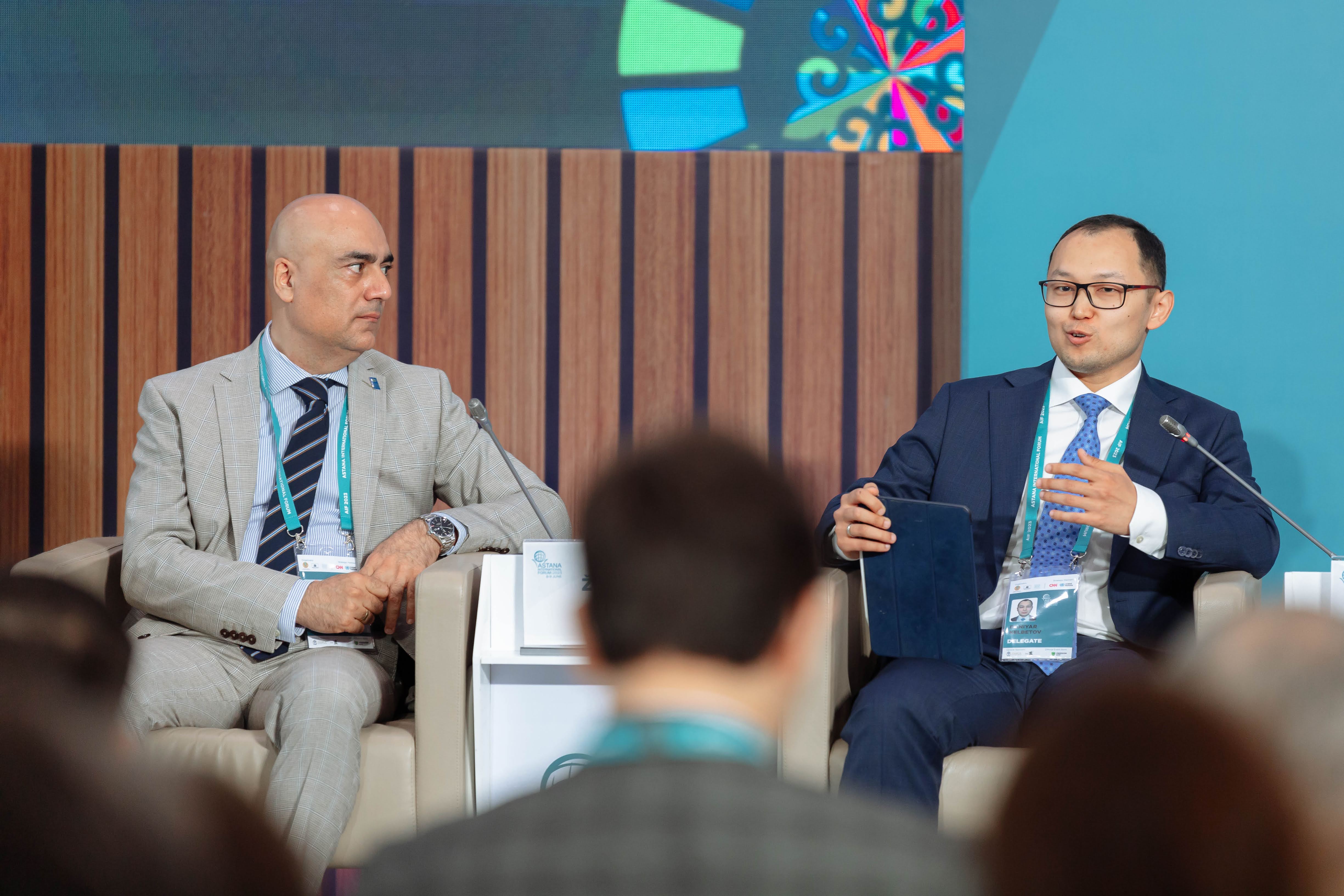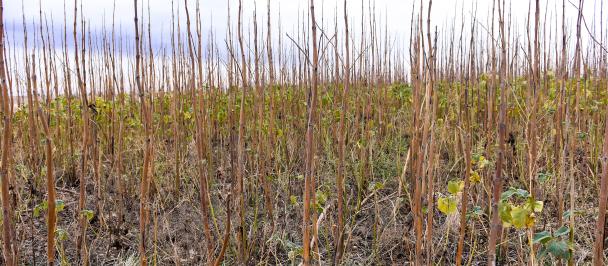Focus of UNDP panels at Astana International Forum
Funding green transition, trudge to reach SDGs milestones
June 30, 2023
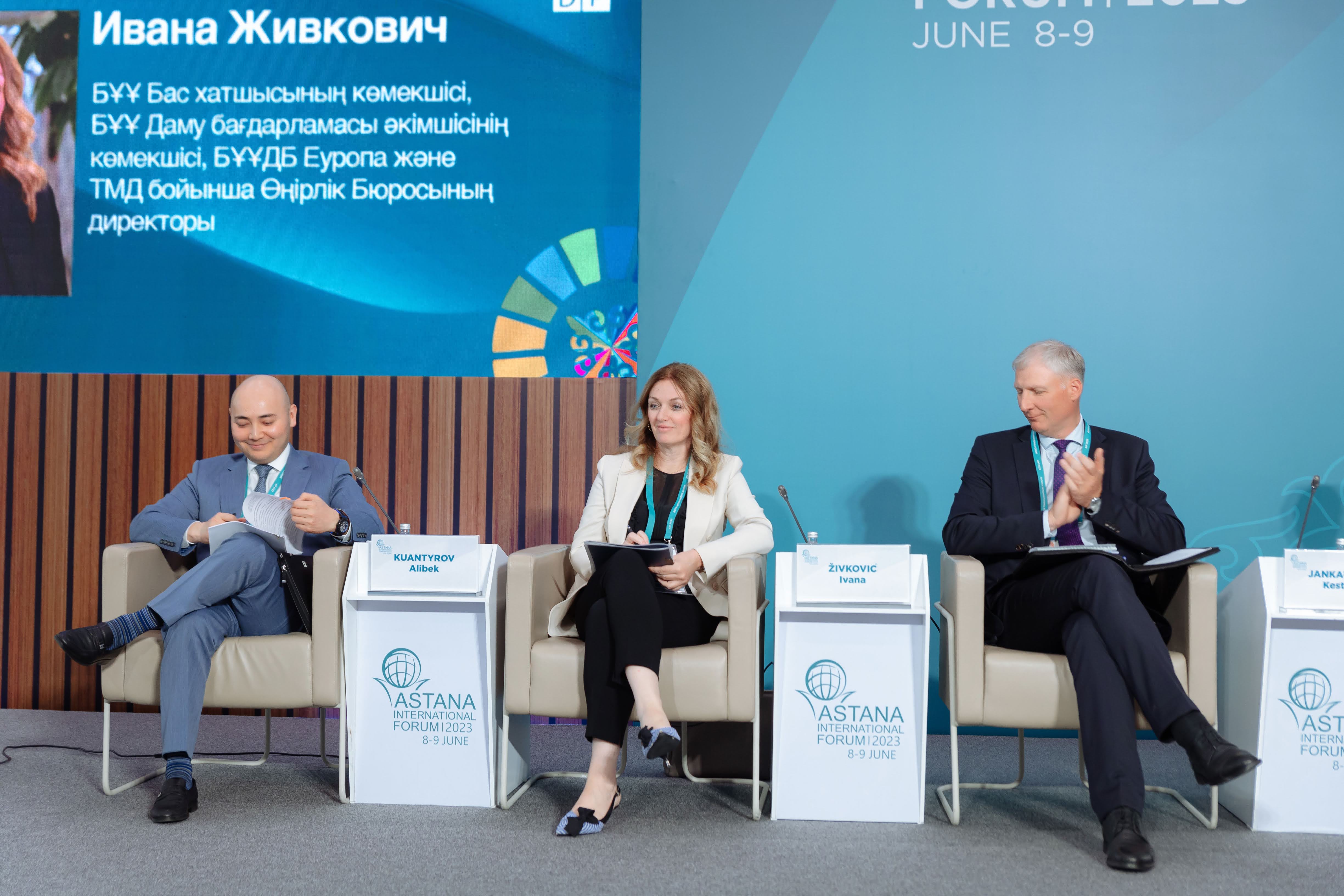
Critical global issues on climate change and tackling poverty and inequality were the focus of two panels hosted by the United Nations Development Programme at the Astana International Forum. The first panel, “Turning a trickle into a flood: Financing the green transition,” discussed the need for increased investment in climate-friendly projects. The second, “Halfway there but far behind: Taking stock of the 2030 Agenda,” assessed progress made towards achieving the Sustainable Development Goals.
“Turning a trickle into a flood: Financing the green transition.”
The panelists on financing the green transition discussed the challenges and opportunities of mobilizing the funds needed to finance the transition to a low-carbon economy. Laura Altinger, Head, Regional Nature, Climate and Energy Team, UNDP Bureau for Europe and Central Asia, moderated the panel.
The effects of climate change are already being felt around the globe, in the form of more extreme weather, rising sea levels and changes in agricultural yields. All participants agreed that if action was not taken to reduce greenhouse gas emissions, the consequences would be catastrophic. The worst effects of climate change could be averted by transitioning to a green economy.
The effects of climate change are already being felt around the globe, in the form of more extreme weather, rising sea levels and changes in agricultural yields. All participants agreed that if action was not taken to reduce greenhouse gas emissions, the consequences would be catastrophic. The worst effects of climate change could be averted by transitioning to a green economy.
The panelists discussed the challenges in mobilizing the funds needed to finance the green transition, such as the lack of a market stimulus for energy transition, data monitoring, reporting and verification systems for green impacts to ensure transparency, accountability and the avoidance of "greenwashing" in projects and initiatives.
The panelists identified several critical factors for unlocking green finance: first, the need for policies to stimulate public funding in low-carbon infrastructure and technologies; secondly, tailored tools and mechanisms to mobilize private sector investment towards carbon neutrality; and, thirdly, international cooperation.
“UNDP plays a crucial role in supporting governments in addressing these challenges. In Central Asia, our climate and green finance portfolio encompasses 34 projects, leveraging around US$900 million in co-financing through the mobilization of some $180 million in grants. This is a good example of blended finance when international public climate grant resources are utilized to attract additional private sector finance. These projects span various areas, such as ecosystem restoration, sustainable food systems, climate resilience, energy efficiency, renewable energy and national adaptation plans,”said Sukhrob Khojimatov, UNDP Deputy Resident Representative in Kazakhstan.

During the Astana International Forum, UNDP also contributed to the discussion on carbon markets, organized by the Astana International Finance Center.
Laura Altinger, Head, o Regional Nature, Climate and Energy Team, UNDP, addressed critical questions related to the development of a carbon market with the help of renewables and its role in achieving carbon neutrality and in identifying opportunities for offset projects in Kazakhstan.
UNDP shared its on-hand experience in the very first International transferred mitigation outcomes (ITMOs) project between Switzerland and Ghana. The session provided for a platform to discuss and learn how the development of the carbon markets can create significant opportunities for low-carbon investment and innovation.
“Halfway there but far behind: Taking stock of the 2030 Agenda”
The second panel brought together experts from government, business and civil society. The panelists discussed the progress made towards achieving the SDGs and the challenges that remain.
The SDGs are a set of 17 goals adopted by all United Nations Member States in 2015. The goals aim to end poverty, protect the planet and ensure prosperity for all by 2030. The panelists noted that some progress towards achieving the SDGs has been made. The number of people living in extreme poverty has declined significantly in recent decades. However, they also noted that there is still a long way to go.
Many people around the world still lack access to basic necessities such as food, water and health care. The panelists discussed a number of challenges that are hindering progress towards achieving the SDGs and concluded by calling for increased cooperation and investment in order to achieve the SDGs.
“The SDG Summit, which will take place in September during the United Nations General Assembly, will offer an opportunity to recommit to these transformative actions. This commitment needs to be made on behalf of governments, but it also, of course, needs to involve all of us. In this regard, we think it is important to send a message of hope and progress. We should focus on what we can still do to reach the SDGs, rather than on what we cannot do,”said Ivana Živković, UN Assistant Secretary-General, UNDP Assistant Administrator and Director of the Regional Bureau for Europe and the Commonwealth of Independent States.
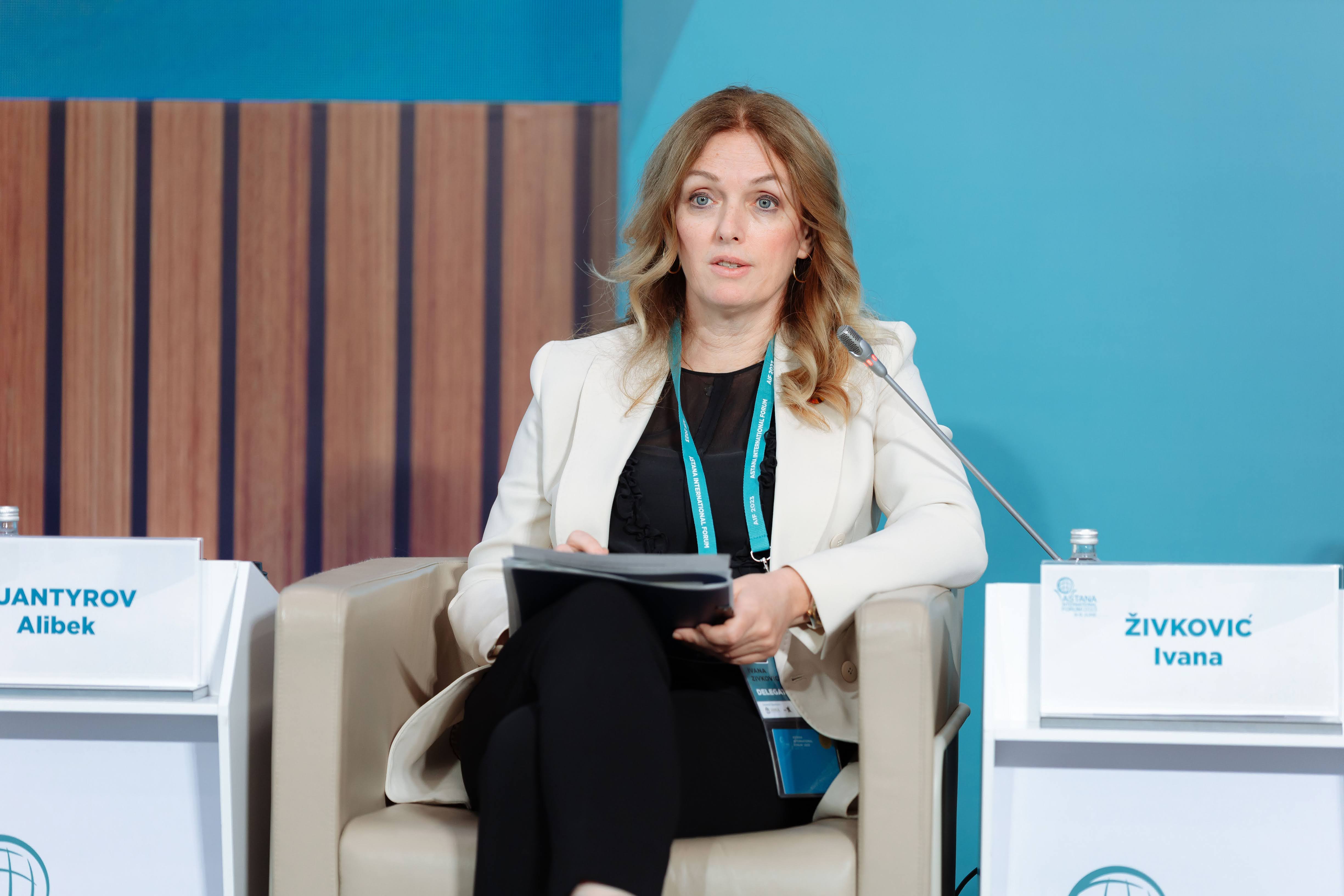
Kazakhstan, along with other United Nations Member States, reaffirmed its commitment to the Sustainable Development Goals.
“In order to effectively implement the commitments made, the Republic of Kazakhstan has a Coordinating Council on SDGs chaired by the Prime Minister of the Republic of Kazakhstan, a Commission on SDGs implementation has been established and a legislative framework has been built. The Sustainable Development Cooperation Framework 2021-2025 is being implemented. Last year, a co-financing agreement was signed for the UNDP 2025 Country Programme for Kazakhstan,”noted Alibek Kuantyrov, Minister of National Economy of Kazakhstan.
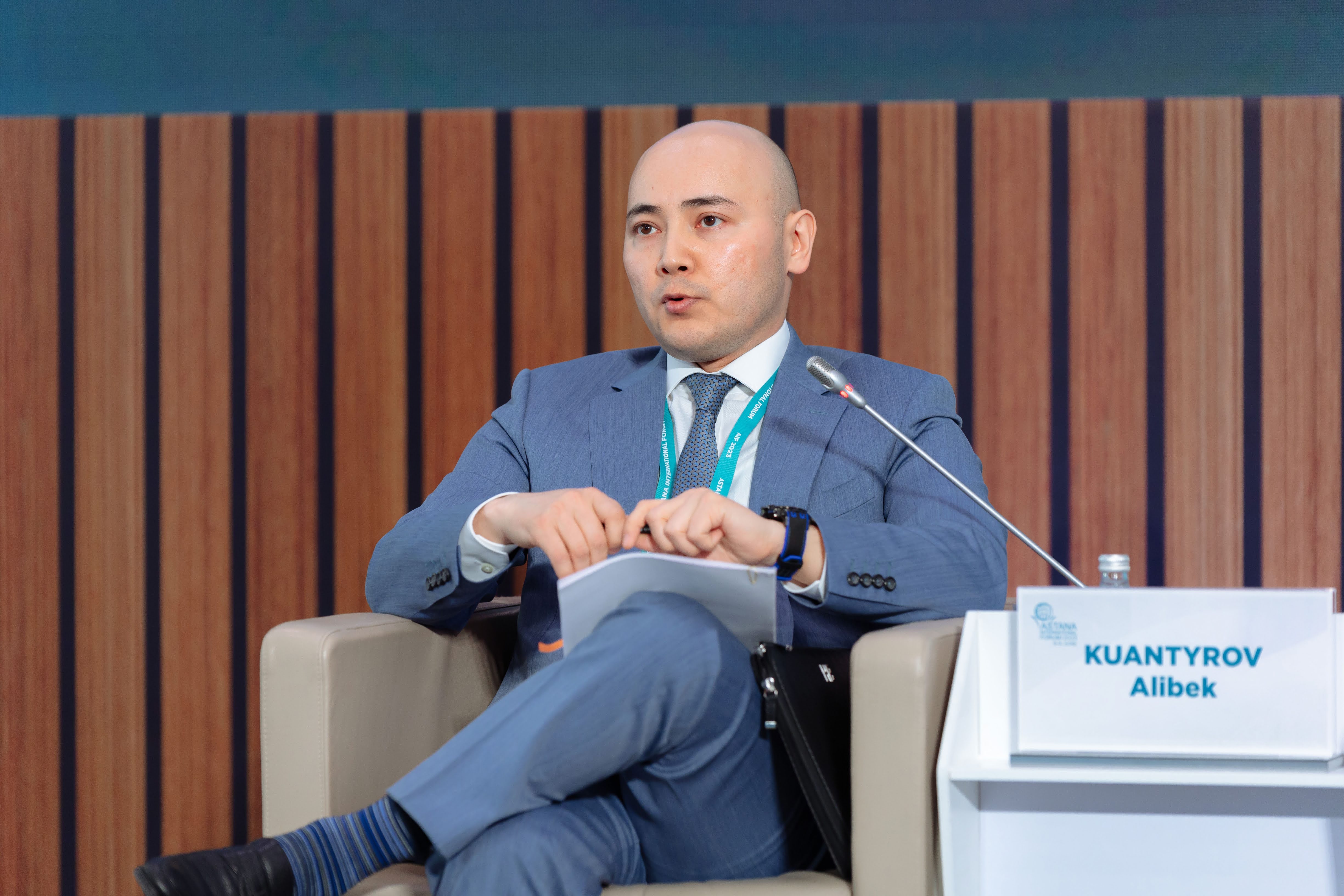
The participants concluded that to achieve the SDGs countries would need efficient policies that generate a growth momentum and in parallel much stronger mechanisms for collective action, especially in the area of carbon neutrality where a partnership with the private sector would be a key driver.
UNDP plays a key role in supporting the integration of the Sustainable Development Goals into strategic planning and aligning public finances with them. To overcome current barriers to financing green initiatives, UNDP has spearheaded the creation of an enabling environment and the development of a green finance system in Kazakhstan.
Within the Astana International Forum, UNDP showcased the interactive map of low-carbon projects, implemented in the regions of Kazakhstan by small and medium-sized enterprises (SMEs).
SMEs are integral to the global economy, playing a pivotal role in job creation, economic growth and innovation. However, SMEs face challenges in accessing financing, especially for sustainable initiatives. Green finance presents an opportunity to bridge this gap, empowering SMEs to implement environmentally friendly practices and contribute to the transition to a low-carbon economy. The development of policies and regulations for green finance, coupled with the promotion of sustainable economic growth through the adoption of green technologies and practices, is crucial for a seamless green transition.
Collaborating with financial institutions and in partnership with the Ministries of Energy and Industry and Infrastructure Development of the Republic of Kazakhstan, green financing solutions, such as green bonds, green loans and other financial products, have been developed and implemented to support SMEs in their quest to adopt sustainable practices.
This year, the Astana International Forum provided a distinguished platform for high-level delegates representing foreign governments, international organizations, business entities and academia to foster meaningful dialogues and explore viable solutions to pressing challenges, including climate change, food shortages and energy security. Both panels were a valuable opportunity to share ideas and perspectives on two of the most pressing issues facing the world today.

 Locations
Locations

